Meat Trade Journal
Sainsbury’s has announced price cuts to its meat and poultry categories as the supermarket’s Christmas sales fell for the first time in a decade.
In a bid to keep up with discounters Lidl and Aldi, Coupe revealed price cuts to its meat, fish and poultry categories this week, as part of a £150m price cut programme announced in November.

“For example, the regular price of our 260g boneless cod fillets has dropped from £4 to £3.30 and the regular price of a Sainsbury’s 1.35kg British whole chicken has fallen by a £1 from £4.50 to £3.50,” he explained.
Meanwhile, the supermarket released its third-quarter results, showing like-for-like (LFL) sales to be down 1.7%. Total sales also fell 0.4%. And chief executive Mike Coupe said the rest of the financial year would “remain challenging”.
Despite falling Christmas sales, Coupe said the week before Christmas was a “record-breaking” period, with more than 29.5m transactions.
“The outlook for the remainder of the financial year is set to remain challenging, with food price deflation likely to continue. Our performance in the third quarter showed an improving trend quarter-on-quarter.”
Coupe predicted the supermarket’s fourth quarter LFL sales to be similar to those during the first half of the year due to “the uncertainty in the trading environment”, food price deflation and the price reductions announced this week.
Tesco and Marks & Spencer are both due to release trading updates for the Christmas period on Thursday.
Ireland will export beef to the US for the first time in almost 16 years, following the lifting of a ban on European imports last year.
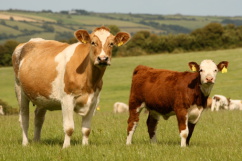
European beef imports have been banned from the US since the BSE crisis in the late 1990s. The ban was lifted last year, but Ireland is the first country to gain full access for its beef products.
“This is the culmination of two years of intensive work between my department and our US counterparts to prove our credentials as a supplier of highest-quality premium beef,” announced Irish Minister for Agriculture Simon Coveney.
The Department for Agriculture in Ireland reported it had already been working with interested Irish plants “to assess their readiness and suitability for export” to the US.
Marketing activity can now begin for Irish beef products, which will involve a dedicated website to promote Irish beef to US consumers, Coveney reported.
Coveney added: “This announcement by the US is a huge endorsement of Irish beef and our production and regulatory systems. It complements the other market access outlets we have secured in the past two years – all of which are a key element of our Food Harvest 2020 strategy to expand the overseas opportunity for Irish beef. It’s clear that diversifying our international beef markets as an exporting country is key to the long-term sustainability of our beef sector.”
The Scottish Association of Meat Wholesalers (SAMW) has reflected on what it called a “crunch” year for the Scottish meat industry.
Alan McNaughton, SAMW president highlighted the beef 2020 plan. a final settlement of the Common Agriculture Policy (CAP) and the appointment of the chair of Food Standards Scotland (FSS) as the achievements of the year.

“The lasting value of the past year’s work, however, will only really be revealed once we see how primary production numbers work out in 2015 and beyond,” said McNaughton.
The SAMQ was instrumental in lobbying for the Beef 2020 plan and reform to the CAP which McNaughton explained: “As a processing sector, we’ve been looking for an upturn in raw material supplies for at least the last five years, with the need for an injection of confidence growing ever more urgent as each year passes. In now labelling 2015 as a ‘crunch year’ for the industry, therefore, I’m particularly conscious of the fact that Scottish farming’s lobbyists and negotiators, including SAMW, definitely gave it their best shot in 2014 and are now looking for a positive production response going forward.”
“Of course, we would all have liked a better deal for the nation’s livestock sector, with the delivery of greater production incentives to match Scotland’s undoubted market potential, both at home and abroad. The reality of today’s position, however, is that we do now have a solidly-funded 2020 package to work with, clear beef efficiency rewards to pursue and a government commitment to keep working with us as the new programme develops. These are valuable 2014 achievements and a clear advance on where we were 12 months ago.”
Meanwhile McNaughton welcomed the appointed of Ross Finnie as the Chair of the FSS set to launch next year: “Having worked closely with both Mr Finnie and Mr Ogle in the past, we value the background and industry understanding they will bring to the shaping of this new and important organisation.
“FSS has been a long time in the making, of course, a process of development which in itself tends to raise expectations for all concerned. For our part, therefore, SAMW’s member companies are looking forward to establishing a level of working partnership with FSS which hasn’t always been true of its predecessor body. As with the creation of a stronger platform for primary livestock production in Scotland in 2015, we hope the detailed planning and preparation which has gone into shaping FSS will deliver a strong, efficient and cost-effective platform for meat processing and product distribution in 2015 and beyond.”
Asda has launched a Farming Discussion Group aimed at Woman as part of a ongoing strategy to promote British farming.
The supermarket said it want to provide a platform “for like-minded business women” to discuss industry issues, share experiences and learn new skills.
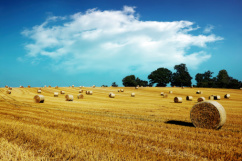
Announcing the new group Asda’s agricultural manager Pearce Hughes, said the group aims to enable women to gain a better understanding of market trends, new products and latest technologies through visits to leading Asda farms and suppliers
Hughes added: “Women have always been a key part of the British farming industry, but for many years their role has been largely unrecognised.
“Today many of the leading farmers are women and we at Asda feel it is important to recognise and promote this. Farming is an industry in need of fresh new talent and women have an increasingly important role to play in feeding the nation.”
Milly Wastie, former chairman of the National Federation of Young Farmers Clubs welcommed the move and Asda’s owners, Walmart’s commitment to gender equality: “The Asda Womens Farming Discussion Group also ties in with WalMart’s global Women’s Economic Empowerment strategy, which has a number of key goals, including increasing sourcing from women-owned business, empowering nearly 1m women through training and promoting diversity and inclusion within our merchandising and professional services suppliers
The Competition and Marketing Authority (CMA) is to investigate the merger of Pork Farms and Kerry Foods over concern it could form a monopoly in the pork pie market.
The acquisition of Kerry Foods by Pork Farms in August has raised fears of lessening competition and higher prices and a reduction in choice or quality for consumers.

“The CMA has found that there is a realistic prospect that the merger will result in a substantial lessening of competition in the branded, own label and convenience retail segments of the supply of cold pies, and the supply of sausage rolls, slices and pasties (when considered in combination) or the supply of sausage rolls (when considered individually),” the CMA said in a statement on it’s website.
Both companies manufacture and supply branded and own label chilled savoury pork products to the food retail sector.
The merger has resulted in the largest or second largest manufacturer of the products to grocery retailers and to convenience stores, either as own label or branded goods.
Andrea Coscelli, Executive Director, Markets and Mergers and decision maker in this case said: “These are very popular products which are currently produced by a small number of manufacturers. This merger will further reduce the choice available to retailers and consumers and may give the merged company the ability to raise prices or reduce the quality of these products.
“Unless Pork Farms offers undertakings that resolve these concerns, we think it is necessary to investigate the merger in greater detail to see whether it could harm consumers’ interests.”
The story behind the creation of the fast food giant McDonald’s could be set to hit the silver screen, according to reports.

Reports in The Guardian and film press claim talks are under way to bring the story of McDonald’s origins to life, with director John Lee Hancock in discussions to direct.
It is said the story, which is titled “The Founder”, will focus on the relationship between founding brothers Mac and Dick McDonald and Illinois businessman Ray Kroc, who eventually took full control of the business in the early 1960’s.
Reports say, “The Founder” will be in the same vein as the Oscar-winning movie about Facebook, The Social Network, and Hancock most recently directed Saving Mr Banks about the creation of the classic Walt Disney film Mary Poppins.
Offal distributor Elmgrove Foods has made the Sunday Times Virgin Fast Track 100 list, made up of country’s fastest-growing companies.
Elmgrove Foods of Co Tyrone, Northern Ireland, produces more than 100 beef, lamb, pork and chicken offal products, which are all distributed internationally. The company made it to 62 on the Sunday Times list.
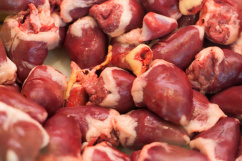
To make it into the top 100, companies must have an operating profit of over £500,000 and annual sales must exceed £250,000. The distributor makes 100% of its profits from exports.
Stuart Dobson, managing director, said he was “thrilled” to have made the Fast Track 100 list, adding that the market for fifth-quarter products continues to grow.
“The export business for offal is becoming more and more competitive, with increased numbers of UK export start-ups and international customers coming direct to source products. Forging and maintaining long-lasting relationships between suppliers, customers and our strong team have been our recipe for the company’s success. Elmgrove’s key is creating new products regularly, our portfolio has over 100 products, which are of high quality and exceed customer expectations,” Dobson told Meatinfo.co.uk.
Elmgrove Foods also won last year’s Food and Drink Federation Exporter of the Year award, as well as the Queen’s Award for Enterprise 2013.
Richard Branson, owner of Virgin, which has sponsored the fast-track list since it began in 1996, said: “This year’s Fast Track 100 is packed full of examples of entrepreneurs taking on many different challenges head-on. Their success is based on real team spirit and it is this togetherness, above and beyond any other factor, that sets great businesses apart from also-rans. The Fast Track 100 is testament to that spirit of creativity and camaraderie.”
Food businesses are gearing up for the implementation of new labeling regulations which include the requirement to declare certain allergenic ingredients and to state the first date of freezing on products including meat.
The new EU Regulation 1169/2011 on the provision of food information to consumers (FIC), which comes into force on 13 December, requires that certain foods, including frozen meat and frozen meat preparations, state the day, month and year the product was ‘frozen on…’. However, according to a recent report by GS1 UK, many products are still missing these date requirements.
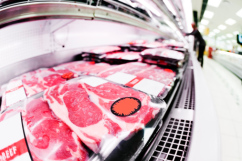
The 14 identified allergenic ingredients, including celery, eggs, mustard, soya and sulphur dioxide, which are used in non-prepacked or loose foods, must be declared either on a label, or on information such as a menu. As well as foodservice outlets, restaurants and delicatessens, catering establishments at schools, hospitals and prisons will also need to comply.
GS1 UK said that although the number of compliant businesses had increased since April this year, there were still a number that had not made the grade. The third in a series of quarterly reports evaluated a basket of 20 products, including prepared ready meals, and meat, with only 11 out of 20 complying at the time the research was collated – up from four out of 20 in April.
Gary Lynch, chief executive of GS1 UK, said: “This series of reports has shown encouraging signs that industry is moving toward compliance. This is a costly and complex exercise for many, but food and drink businesses have been taking it very seriously.”
From 1 April 2015, the requirement for the mandatory origin labeling of unprocessed fresh, chilled or frozen meat from pigs, sheep, goats and poultry, comes into effect.
Northern Irish meat firm Finnebrogue and chicken firm Benson Park have been listed as two of the fastest-growing companies in the UK.
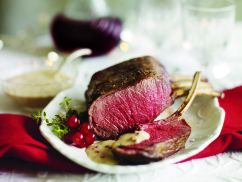
The Investec Bank Mid-Market 100 is a countdown of the UK’s fastest-growing private companies, most notably manufacturers and food and drink. These sectors collectively account for almost two-fifths of the UK 100 companies, with 20% and 19% respectively.
Chicken processor Benson Park, which was recently acquired by Cranswick, reported strong profits of £41.1m for the year 2013/2014. Meanwhile, Finnebrogue, which is set to hit a turnover target of £45 million this year, now includes The Good Little Company focusing on sustainably developed pork sausages, burgers and bacon.
Investec’s head of growth and acquisition finance Ed Cottrell said: “It is great to see mid-market growth coming from all four corners of the UK and across a broad range of industry sectors.
“We know from our experience of working with mid-sized businesses that they are highly committed to investing for long-term growth and we look forward to seeing these companies go from strength to strength in the future.”